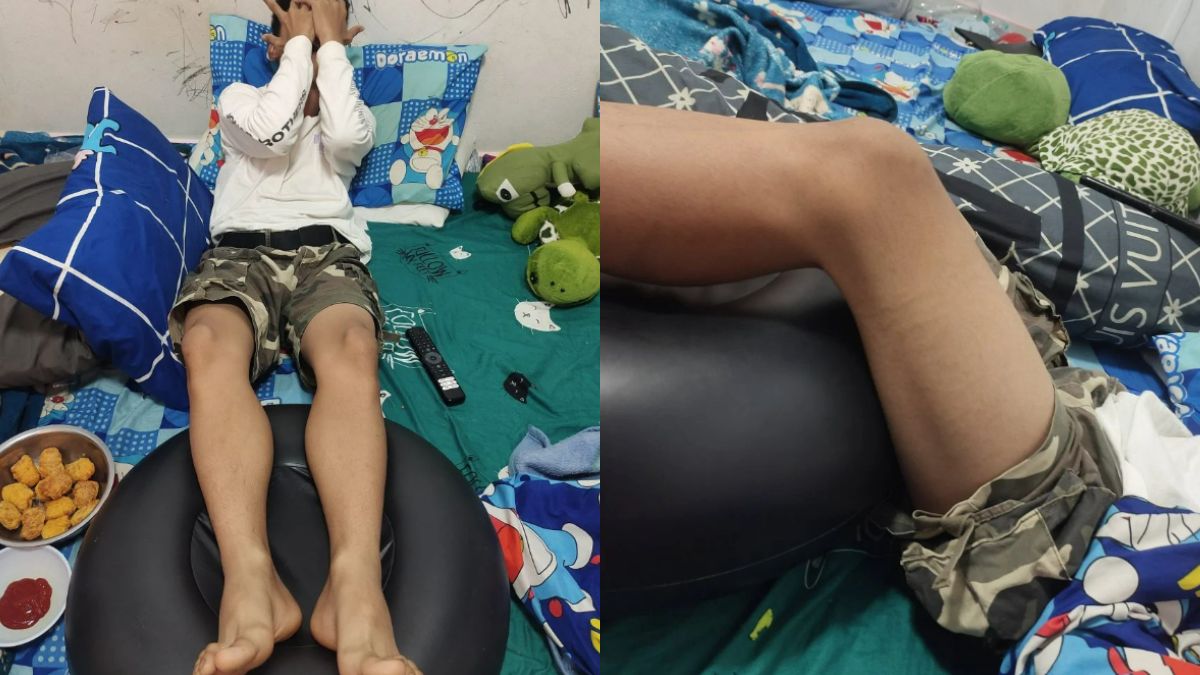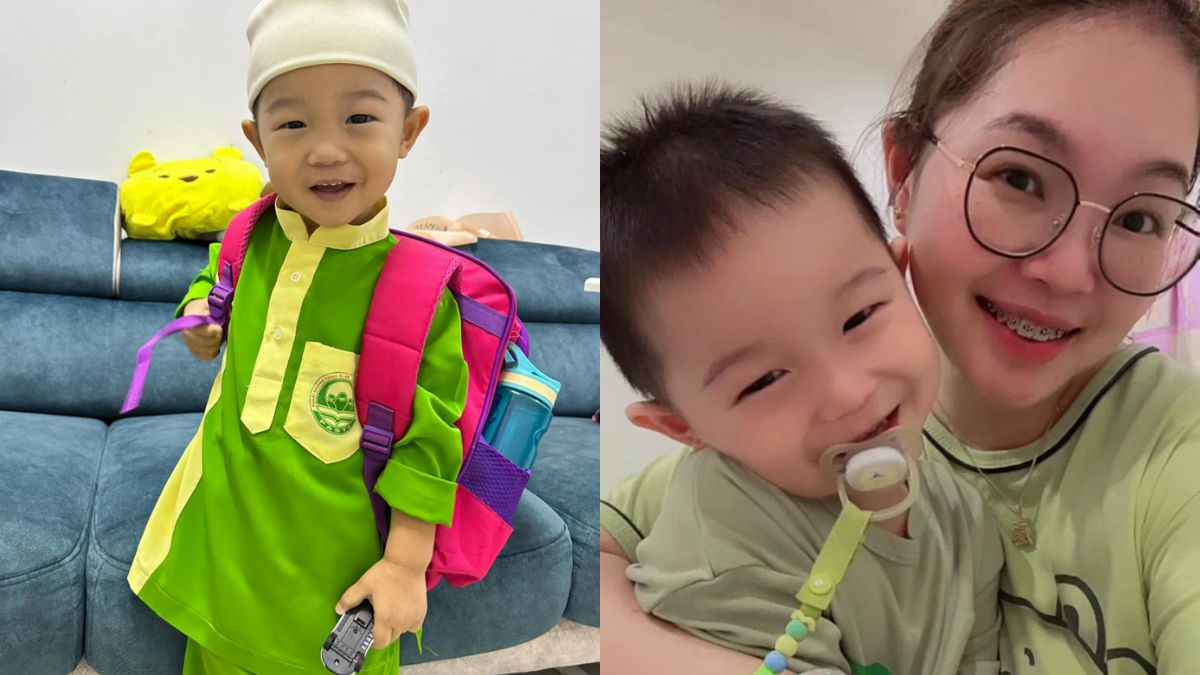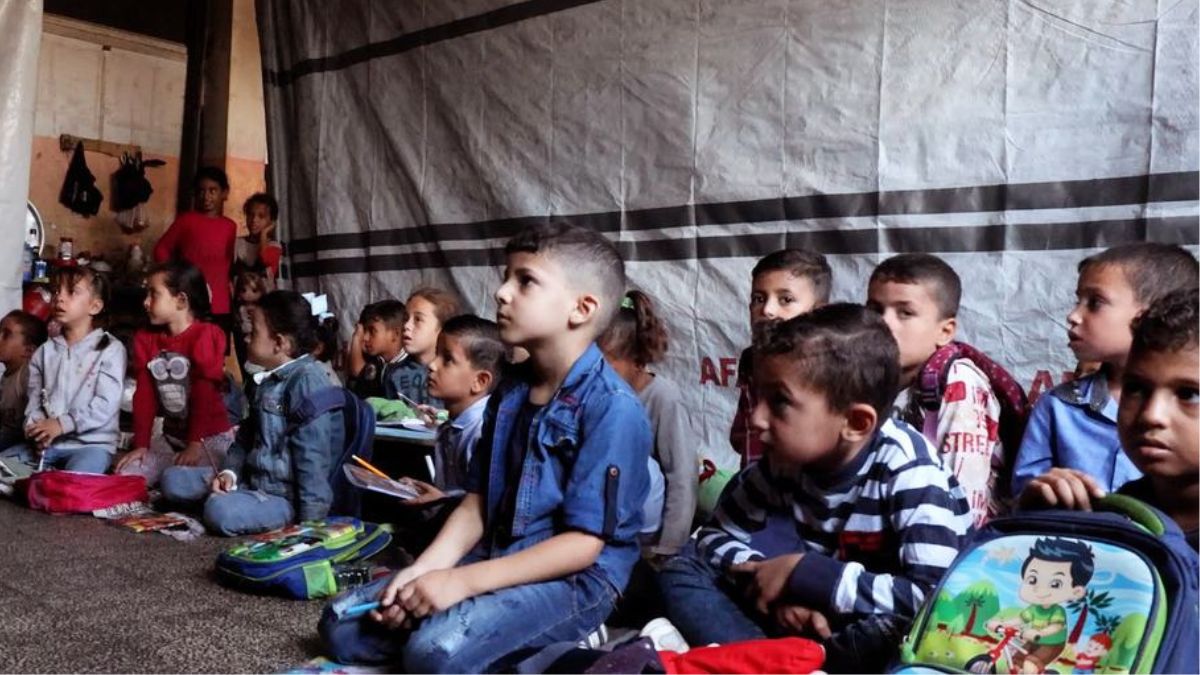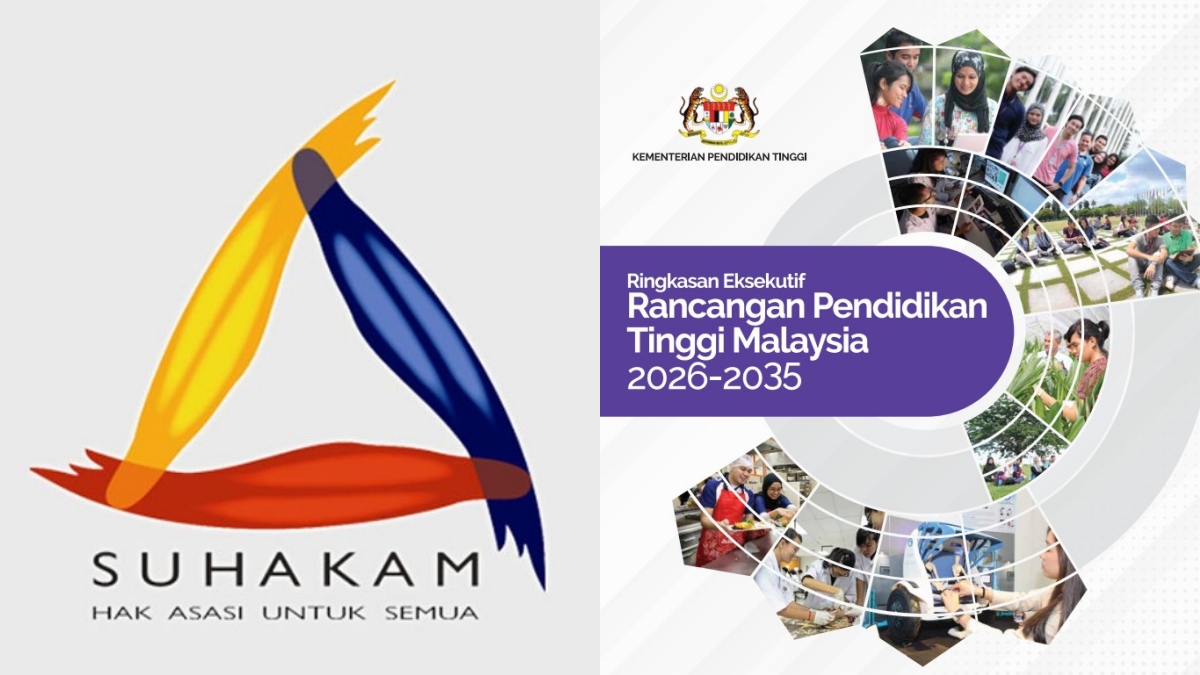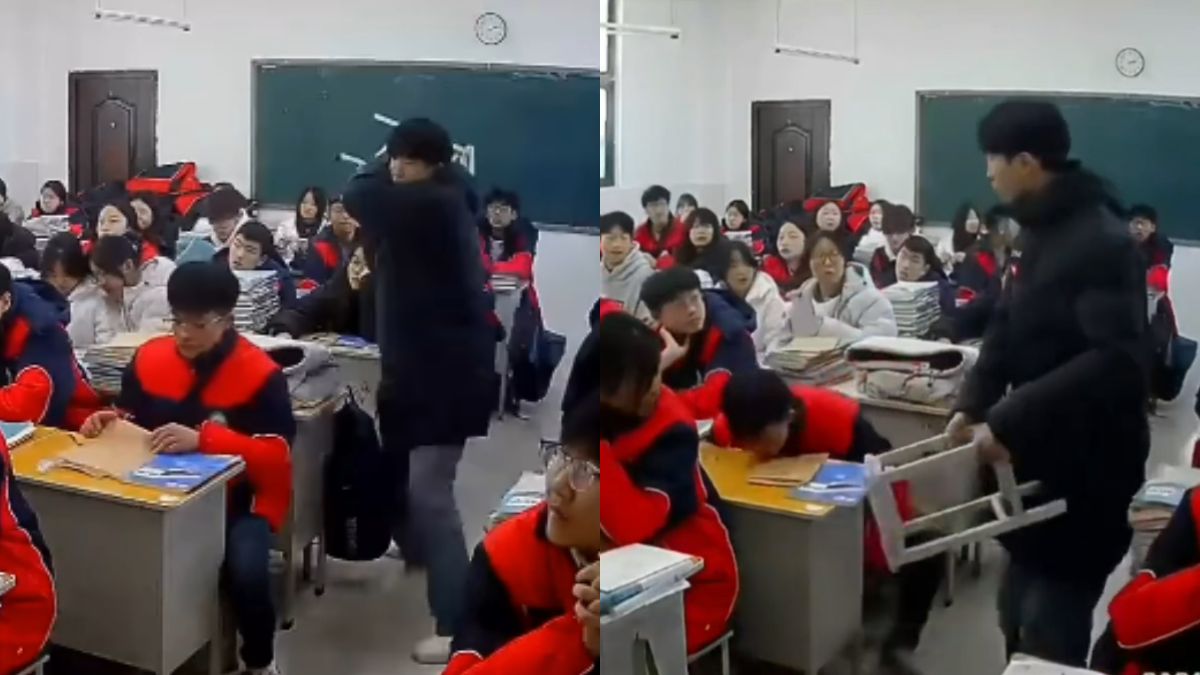Singaporeans Prioritise Well-Being, Soft Skills, and Alternative Learning Over Traditional Degrees
A recent Milieu Insight study shows Singaporeans increasingly value students’ mental health, soft skills, and practical learning over traditional academic achievements. While 73% remain satisfied with the education system, growing interest in apprenticeships, workshops, and entrepreneurship reflects shifting priorities. Parents now focus more on holistic success than purely tuition or university degrees.

- Singaporeans are placing greater emphasis on mental well-being, communication, collaboration, and practical skills, signalling a shift from purely academic success.
- Alternative education paths such as apprenticeships, short workshops, professional certifications, and entrepreneurship are gaining popularity, while traditional university degrees are viewed as less essential.
SINGAPORE – A recent study by Milieu Insight has revealed a significant shift in how Singaporeans perceive education, highlighting a growing focus on mental well-being, soft skills, and practical learning experiences. Conducted between 26 June and 17 July 2025, the survey gathered responses from 1,000 Singaporeans aged 16 to 55 and above, with a margin of error of ±4 percentage points.
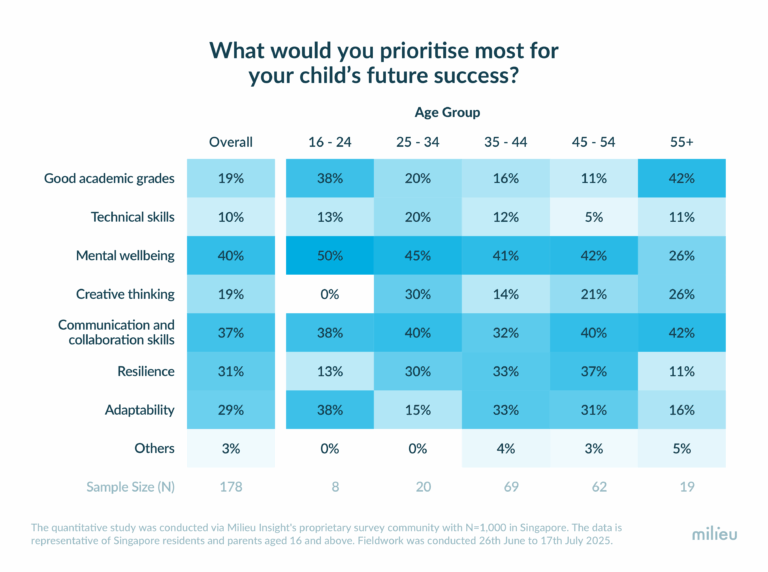
Strong Satisfaction, Emerging Focus on Soft Skills
The study found that overall satisfaction with Singapore’s education system remains high, with 73% of respondents expressing approval. Additionally, 63% agreed that the system effectively prepares students for the real world, with support strongest among those aged 55 and above, indicating long-standing confidence in the system.
Importantly, 63% of respondents felt the system teaches essential soft skills such as communication, teamwork, and critical thinking. This growing recognition suggests that competencies beyond academics are increasingly valued as crucial for life beyond school.
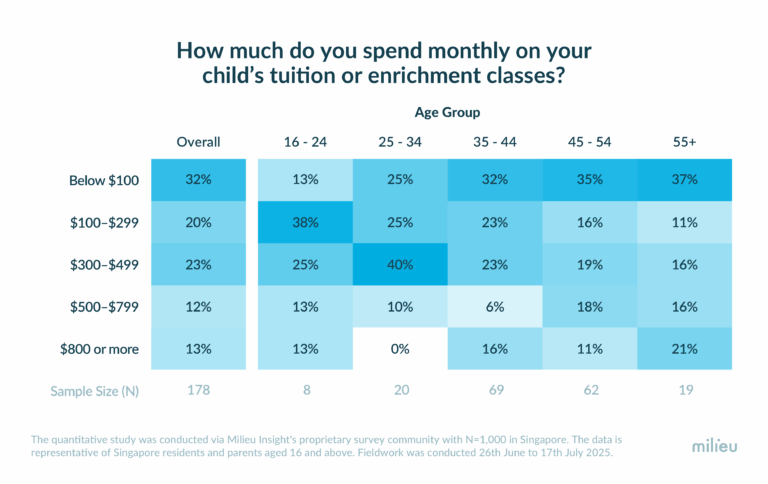
Tuition Practices Reflect Cultural Norms, But Raise Concerns
Parents aged 25 to 34 reported the heaviest investments in tuition and enrichment for their children. Among this group, 50% said their children spend four to six hours weekly on supplementary classes, while 40% spend between S$300 and S$499 monthly.
Despite this, nearly half of parents (48%) acknowledged that children experience significant academic pressure. Yet, 71% indicated tuition had not been stopped due to stress or fatigue, reflecting a cultural emphasis on perseverance and academic rigor.
Interestingly, only 40% of parents believed that their child’s academic performance would decline if tuition were unavailable or unaffordable, pointing to skepticism about the long-term efficacy of supplementary lessons.
Reassessing the Value of University Degrees
The study also highlighted changing attitudes toward higher education. Only 38% of Singaporeans consider a university degree moderately important today, with many perceiving that employers share this sentiment. Among degree holders, career opportunities (74%) and higher income potential (68%) were primary motivators for pursuing tertiary education.
Those who downplay degrees cited real-world experience as more crucial, also at 68%, suggesting a growing acknowledgement of practical skills over formal credentials.
Alternative Education Paths Gain Popularity
Alternative learning options are increasingly favoured across age groups. The study found:
-
73% of respondents aged 16 to 24 support apprenticeships
-
Over 60% of those aged 25 to 44 prefer short, skills-based workshops
-
53% of those aged 45 to 54 lean toward professional certifications
-
57% of respondents aged 55 and above express interest in entrepreneurship or self-directed learning
The trend is linked to the rise of unconventional career paths, with nearly 60% agreeing that professions such as influencers, YouTubers, streamers, and TikTokers have made a bachelor’s degree appear less critical for modern success.
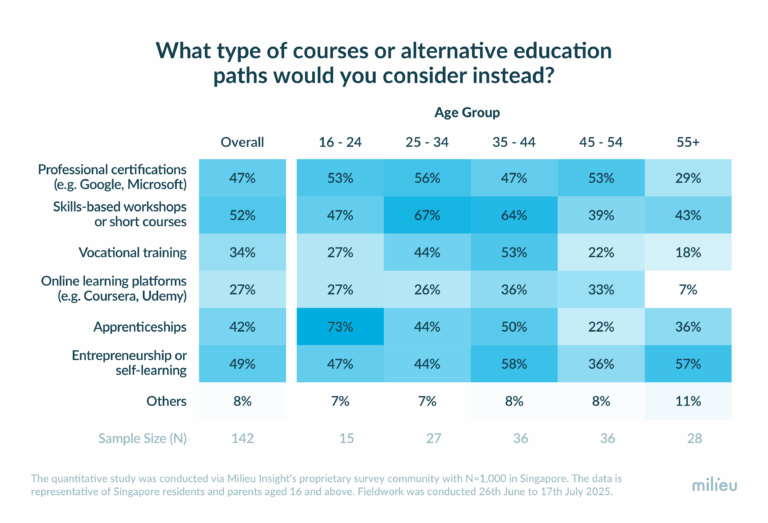
Broadening Definitions of Success
Juda Kanaprach of Milieu Insight commented on the findings: “The data paints a clear picture: while academic achievement and degrees still matter, Singaporeans are becoming increasingly mindful of soft skills, well-being, and alternative educational paths.”
He added that the findings illustrate an evolving mindset that aligns education with the changing demands of the workforce and society. The emphasis is no longer solely on grades or formal credentials, but on a broader set of qualities that equip individuals to thrive in diverse environments.


